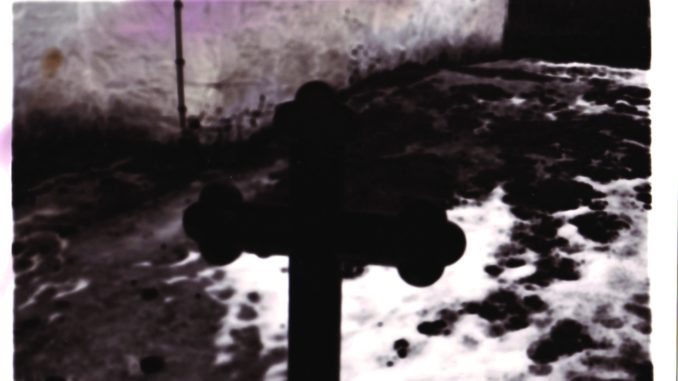
A new Ihsahn album is always something of an event. By the time Emperor had reached their last album, the band was basically an extreme vehicle for the musical avenues Ihsahn had explored with Thou Shalt Suffer and Peccatum, and while this most certainly divided the fanbase, many fans were glad to hear an artist evolving, utilizing what he had learned from other projects. After Emperor and Peccatum both called it quits, it was truly a delight to learn that Ihsahn would continue producing music under his own name; having carved out his spot in the world of metal, he basically answered to no one and was free to explore his every musical whim, for better or for worse. Largely, these efforts have been solid, if not completely revolutionary – I personally prefer The Adversary to AngL, but both have excellent moments as well as some lackluster ones. Ihsahn’s songwriting style is singular, but stretched across a pair of 50-minute albums his writing and playing styles become fairly transparent.
So it is my great pleasure to announce how completely fucking excellent, listenable, layered and energetic After is. There are familiar moments – Ihsahn’s harsh vocals are still as unique as ever, his rhythm riffing still as crunchy as ever, and his soloing as precise and neo-classically inspired as ever (see “Frozen Lakes on Mars” for examples of both), and his choice of synth sounds still tasteful and in full service to the music – although he takes an organ solo in “Austere” that seems to have a page out of Mirai Kawashima’s playbook. But something about the songwriting as a whole seems more energized, each piece demonstrating concise symmetry when necessary and wandering off into less-charted territory as often as appropriate. Austere goes right from that organ solo into a pristine multi-tracked guitar part with some fluid fretless bass underneath that should satisfy any prog fan a million times over, before a crunching recapitulation of the opening section. And both A Grave Inversed and Heavens Black Sea give fond memories of Emperor at their best – fierce and aggressive black metal energy with some sweeping clean vocal choruses and epic tinges in the riffing and keys.
But I daresay the single most important addition here is Jorgen Munkeby of Shining playing a mean tenor sax on at least half the album. In my early days of exploring avant-garde metal, I always craved bands that utilized unique instrumentation. I’ve loved free-jazz saxophone playing since my early youth, and I always tried to imagine full-on, raging metal with an equally raging, screeching sax in the fashion of later John Coltrane, Pharoah Sanders or Ornette Coleman; and unfortunately, many metal bands utilizing saxophone go for a more European, Jan Garbarek-inspired approach – a pretty, airy tone that is certainly unique (and sometimes well-used), but often not satisfying. For Munkeby, this is not the case. As fans of Shining can testify, Munkeby has a lacerating tone, honking and screeching as necessary but grounded by a firm technical base.
Many of the best moments on this album feature him and Ihsahn doubling the same melody line, with Munkeby subtly making the melodies his – the contrast between Ihsahn’s aggressive but straight-forward guitar tone and Munkeby’s chewed, bent and double-tongued notes provide some of the album’s most rewarding revelations. But when he is allowed to run free over Ihsahn’s carefully-arranged harmonic backdrop, he completely shreds, subtly deconstructing the material he’s given and making it fresh, even when he’s given several minutes to carry a section. (The closest parallel I can think of is Adrian Terrazas-Gonzalez, the former reedman for The Mars Volta, who’s best post-Coltrane moments energized even the most meandering moments that band produced on Frances The Mute, Amputechture and The Bedlam in Goliath.) The album’s two epics, Undercurrent and On The Shores, are based around a similar melodic motif, and in both pieces Munkeby is given extended solos that tap so firmly into the free-jazz tradition you’d almost forget you were listening to metal. The contrast between Ihsahn’s very organized (if dissonant) guitar soloing and Munkeby’s chaotic saxophone explosions is one of the many layers beneath the surface that give the album such incredible replay value, and I dare say that even having listened to the album a dozen times in the last two weeks, there are many layers I have yet to discover. In my dreams, this album serves as a blueprint for jazzy experimentation for years to come.
-Adam Matlock
VITALS:
Release: 2010
Label: Mnemosyne Productions
Avantgenre: Janus Crimson Metal
Duration: 53:04
Origin: Norway
Official site: http://www.ihsahn.com/
Review online since: 31.03.2010 / 18:27:02
TRACKLIST:
01 – The Barren Lands
02 – A Grave Inversed
03 – After
04 – Frozen Lakes On Mars
05 – Undercurrent
06 – Austere
07 – Heavens Black Sea
08 – On The Shores

Leave a Reply